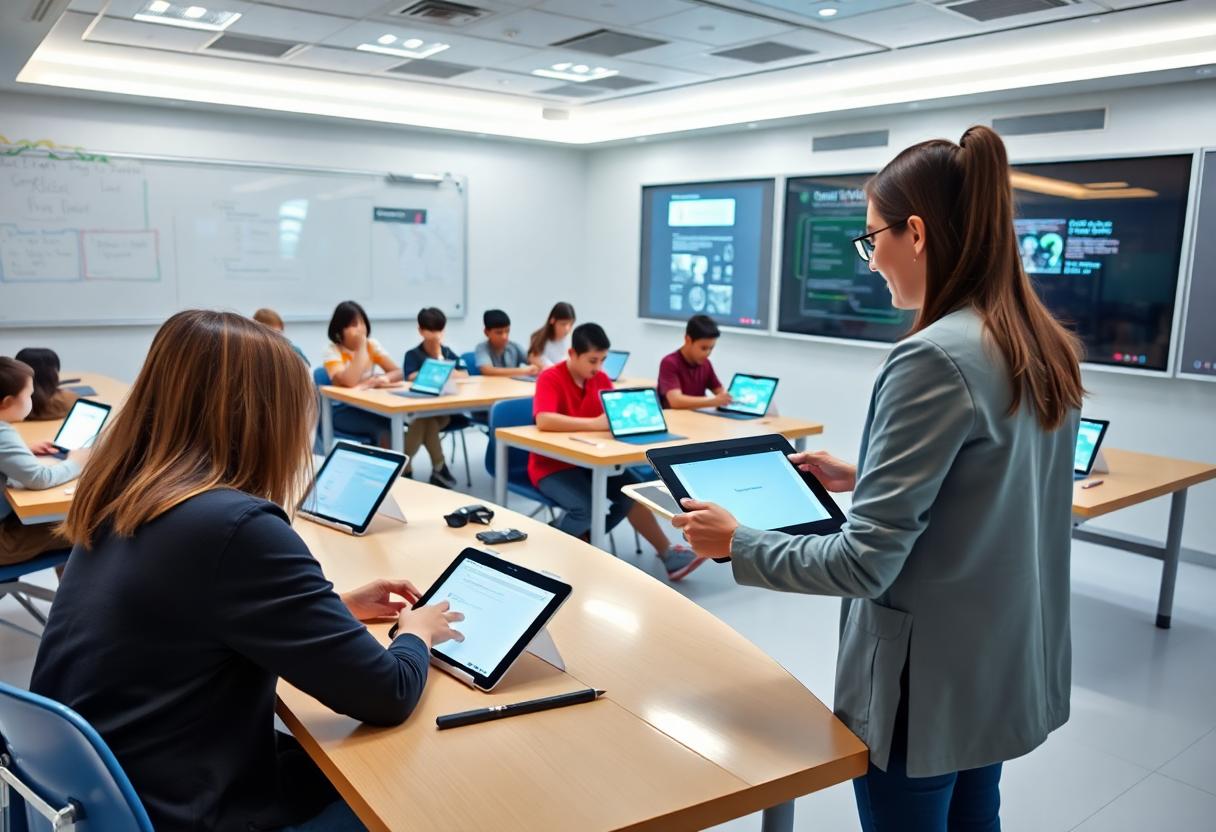Harnessing AI: Crafting Engaging Educational Materials for Learners of All AgesThe AI revolution in education is transforming the way we learn, making educational materials more interactive and personalised for students of all ages. Through AI, students can benefit from a tailored approach that adapts to their individual needs, fostering creativity and engagement through tools such as virtual tutors and interactive games. Additionally, AI enhances accessibility for students with disabilities, breaking down linguistic and cognitive barriers.
Enjoy:
- Over 60 AI tools to create quality content
- More time for creativity, stress-free
- Impactful content that attracts readers and visitors
All with just one click.
However, this evolution in education raises ethical questions about the use of AI in the classroom.
Personalised Learning Journeys: The AI Revolution in Education
The AI revolution in education is ushering in a new era of personalised learning journeys for students. With the help of AI, educational materials can be tailored to meet the individual needs of learners of all ages. Virtual tutors powered by AI algorithms can provide personalised guidance and support, adapting their teaching methods to match the unique learning style of each student. This allows for a more engaging and effective learning experience, as students can progress at their own pace and receive immediate feedback. By harnessing the power of AI, education is becoming more student-centric, empowering learners to take control of their own educational journey.
From Virtual Tutors to Interactive Games: Tools that Inspire Creativity
Virtual tutors and interactive games are revolutionizing the educational landscape by providing tools that inspire creativity in learners of all ages. With the help of AI, these tools offer personalized learning experiences that cater to individual needs and preferences. Virtual tutors act as guides, offering support and feedback, while interactive games engage students in a fun and interactive way. These tools not only encourage critical thinking and problem-solving skills but also foster creativity by allowing students to explore and experiment in a safe and controlled environment. By harnessing the power of AI, virtual tutors and interactive games are transforming education into an engaging and enriching experience for learners.
Breaking Barriers: How AI Enhances Accessibility in Education
AI is revolutionizing education by breaking down barriers and enhancing accessibility for students. With the help of AI, students with disabilities can overcome language and cognitive barriers that may hinder their learning experience. Language translation tools powered by AI enable students to access educational materials in their native language, making learning more inclusive. Additionally, AI-powered assistive technologies provide support for students with cognitive disabilities, such as dyslexia or ADHD, by offering personalized learning strategies and accommodations. By eliminating these barriers, AI ensures that every student has equal access to quality education, promoting inclusivity and empowering learners of all abilities. However, ethical considerations regarding the use of AI in education must be carefully addressed to ensure fairness and privacy for all students.
As AI continues to revolutionize education, the potential for personalized learning journeys, interactive tools, and enhanced accessibility is undeniable. However, as we embrace these advancements, it is crucial to reflect on the ethical implications of relying heavily on AI in education. How can we strike a balance between technology and human interaction to ensure a holistic learning experience?
